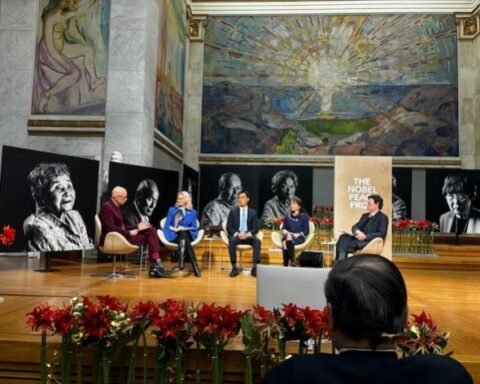In a series of provocative statements, President-elect Donald Trump has stirred controversy with his remarks about the Panama Canal and Greenland, both of which he suggested could be under U.S. control. These comments represent a shift toward a more assertive foreign policy stance, moving beyond his previous “America First” rhetoric focused on domestic issues.
At a conservative conference in Arizona on Sunday, Trump criticized Panama for imposing “ridiculous, highly unfair” fees on U.S. ships using the Panama Canal, a vital waterway for international trade. The canal, which was under U.S. control until the 1970s, was fully handed over to Panama via a treaty. However, Trump threatened to demand its return to the U.S. if the shipping fees were not reduced, although he did not specify how he would pursue this.
Trump also expressed concerns about China’s growing influence in the region, noting that China is the second-largest user of the canal after the U.S. and has significant economic interests in Panama. “There’s a real U.S. national security interest… in controlling its neutrality,” said Will Freeman, a fellow at the Council on Foreign Relations, highlighting the strategic importance of the canal in the event of military conflict.
Panama’s President, José Raúl Mulino, responded firmly, asserting that the canal belongs to Panama and would remain under its control.
In addition to his comments on the Panama Canal, Trump reiterated his long-standing interest in Greenland, a Danish autonomous territory. Over the weekend, he posted on social media that the U.S. “feels that the ownership and control of Greenland is an absolute necessity” for national security and global freedom. Greenland is strategically located in the Arctic, rich in natural resources, and hosts the U.S. Pituffik Space Base. While Trump’s 2019 proposal to purchase Greenland from Denmark was rejected, he has once again expressed interest in acquiring the territory, citing its importance amid growing global competition in the Arctic.
Trump Meets TikTok CEO as US Plans to Ban the App Looms
Trump says Syria ‘not our fight’. Staying out may not be so easy
Greenland’s Prime Minister, Múte B. Egede, firmly rejected Trump’s remarks, declaring, “We are not for sale and we will not be for sale.”
Despite the strong pushback, Trump’s rhetoric continues to focus on leveraging U.S. power to secure its interests. His son, Eric Trump, even shared a playful image on social media showing an online shopping cart with Greenland, the Panama Canal, and Canada, further illustrating his father’s unorthodox approach to foreign policy.
As Trump prepares to take office for a second term on January 20, it remains unclear whether these bold assertions are part of a broader strategy to challenge U.S. trade partners and assert dominance in global affairs, or if they are mere rhetorical tactics. Denmark has signaled a willingness to cooperate with the incoming administration, even announcing a significant increase in defense spending for Greenland following Trump’s renewed interest in the territory.
The next steps for the U.S. in these international disputes will likely unfold as Trump assumes the presidency once again.







